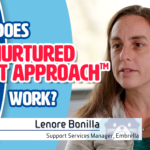You hear the door bell ring early in the morning. When you open it, the person introduces himself as an Institutional Abuse Investigation Unit (IAIU) investigator and informs you that you have been accused of the abuse and neglect of your foster child. You are understandably afraid. You have a lot of questions, and you need answers fast. When an allegation is made, it’s important you, as the resource parent, know the process and are prepared. Start with our IAIU FAQ.
Who is the IAIU?
The Institutional Abuse Investigation Unit (IAIU) is a division within the Department of Children and Families in New Jersey that investigates allegations of abuse and neglect in settings outside of the home. This includes foster homes, residential centers and schools.
Who can make an IAIU accusation?
Anyone can make an IAIU accusation. If a resource parent is accused, the claim can come from caseworkers at the Department of Child Protection and Permanency (DCP&P) or even the biological parents. A child in care can also make an accusation. As stated earlier, places like day cares or schools can receive an accusation from a student or parent. The allegation can come from anyone at anytime.
For example, there was a case where a bus company faced an accusation because the bus driver didn’t notice a student fell asleep on the bus. The driver left the child on the bus, and, after many hours of searching, the child was finally discovered.
An accusation has been made against me. What does that mean?
Having an accusation made against you means there is suspicion your foster child is being harmed. Depending on the accusation and whether it is true or false, your resource parent license can be suspended or revoked. The IAIU, in conjunction with the Resource Unit and the Office of Licensing, determines that course of action. Depending on the extent of the allegation and whether it’s true, it can also mean prosecution.
I have not done anything wrong. Who can I talk to?
Your embrella’s Family Advocate is here to explain the IAIU process to you. It is in your best interest to cooperate with the investigation and to speak to DCP&P staff as well as investigators to make sure you are fully heard. If you don’t feel your concerns are being addressed, you can take proactive steps and make an appointment to have an in-depth conversation with an IAIU investigator.
It’s understood that the process can be frustrating; however, it is extremely important to maintain communication and contact with your Resource Family Support Worker (RFSW) and IAIU investigator. If you are having difficulty contacting them, you can follow the chain of command and reach out to the supervisor. You can also contact your regional IAIU office.
What should I expect once an IAIU accusation has been made against me?
The investigation unit has 60 days to determine one of four possible outcomes. During this time frame, the investigator will determine if there is enough evidence to indicate abuse or neglect. The first step in this process is to interview the child who is the alleged victim individually or observe him if he cannot speak. The caregiver or the institution is then interviewed. Since you are a resource parent, every adult in your home must also go through the interview process.
After reviewing each interview, the person who reported the allegation, and anyone identified in the report, must also be interviewed. When that is complete, you are interviewed in person and a Child Abuse Record Information (CARI) check is completed. After all interviews, background checks and assessments are made, the IAIU investigator will determine the next steps based on the evidence provided.
It is important to note that, depending on the severity of the accusation, law enforcement can be contacted at any time.
There are four possible outcomes to the investigation.
Here is a breakdown of each:
• Unfounded – No evidence indicating a child was abused or neglected
• Not established – Not enough evidence indicating the child was abused or neglected
• Established – Evidence that the child was placed in harm but not enough to determine the child was abused or neglected
• Substantiated – Evidence established a child has been abused or neglected
As previously mentioned, the appropriate actions will be taken depending on the severity of the case. If the result is as extreme as sexual abuse, violence or death, it may result in prosecution.
To learn more about the IAIU process, click here.
I’m afraid. Is there someone who can help?
embrella’s Family Advocates are here to assist you if you are dealing with an IAIU accusation. If you have questions about DCP&P policy that can prevent investigations in the future, our FFAs can also help. Because it’s an investigation, FFAs cannot advocate or stand on behalf of anyone accused, but they can explain policy and the IAIU process.
After the investigation, FFAs can provide you with preventative steps. These steps are aimed towards keeping you informed, alleviating concern and providing emotional support. embrella provides training to keep resource parents knowledgeable about the latest changes in DCP&P policies.
Before an allegation arises, or if you have specific questions about DCP&P policy, reach out to your FFA. They are here to provide the added support you need. If you’re frustrated, tired or just need a listening ear, give them a call. Also you can take advantage of embrella’s Heart to Heart Mentoring Program.
After going through the process, your case was unfounded. You are relieved you can continue to provide care to children in need. With all of the helpful information you have gained through the process, you are better prepared to either avoid future allegations or deal with them if they should arise again.



We need some assistance from you about an IAIU investigation and what to do? Who can help?
Please advise.
Hi John,
We can have a FAFS Family Advocate reach out to you via the email. If you’d prefer, please call us at 609.520.1500.
I got licensed for the 1st time on December 2016…I had an abuse/neglect allegation with IAIU for a child I had in my care in Oct 2018. The investigation case has been unfounded on January 2019…my question is am I allowed to continue to care for children in need and if so when does the process start again? How long does it take? What needs to be done?
Thank you for reaching out! We are glad that you have been able to connect with Family Advocate Courtney Brown regarding your questions. If you need additional assistance, please feel free to reach out to Courtney.
Sincerely,
Lenore Bonilla
Support Services Manager